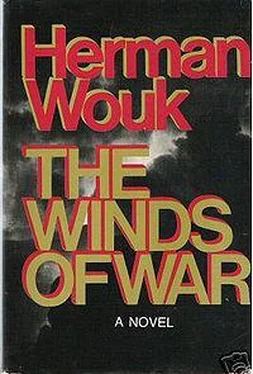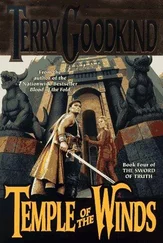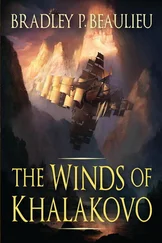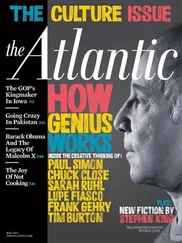Herman Wouk - The Winds of War
Здесь есть возможность читать онлайн «Herman Wouk - The Winds of War» весь текст электронной книги совершенно бесплатно (целиком полную версию без сокращений). В некоторых случаях можно слушать аудио, скачать через торрент в формате fb2 и присутствует краткое содержание. Год выпуска: 1971, Издательство: Collins, Жанр: Историческая проза, на английском языке. Описание произведения, (предисловие) а так же отзывы посетителей доступны на портале библиотеки ЛибКат.
- Название:The Winds of War
- Автор:
- Издательство:Collins
- Жанр:
- Год:1971
- ISBN:нет данных
- Рейтинг книги:4 / 5. Голосов: 1
-
Избранное:Добавить в избранное
- Отзывы:
-
Ваша оценка:
- 80
- 1
- 2
- 3
- 4
- 5
The Winds of War: краткое содержание, описание и аннотация
Предлагаем к чтению аннотацию, описание, краткое содержание или предисловие (зависит от того, что написал сам автор книги «The Winds of War»). Если вы не нашли необходимую информацию о книге — напишите в комментариях, мы постараемся отыскать её.
About the Author
Herman Wouk's acclaimed novels include the Pulitzer-Prize winning
;
;
;
;
;
; and
.
The Winds of War — читать онлайн бесплатно полную книгу (весь текст) целиком
Ниже представлен текст книги, разбитый по страницам. Система сохранения места последней прочитанной страницы, позволяет с удобством читать онлайн бесплатно книгу «The Winds of War», без необходимости каждый раз заново искать на чём Вы остановились. Поставьте закладку, и сможете в любой момент перейти на страницу, на которой закончили чтение.
Интервал:
Закладка:
“Where are you putting us? A place with bathtubs, I hope.”
“It’s no problem. In the past three days the hotels have emptied. The Europeiski has some luxurious rooms, quite Western, really, and at Eastern prices. Don’t figure on staying long. The situation can still turn sour overnight.”
“I thought maybe a week,” Natalie said. “Then Byron and I can fly or drive down to Cracow and visit Medzice, and then fly on back to Rome.”
“Great bloody Christ, what are you talking about? Medzice! Just forget it, Natalie!”
“Why should I? Uncle Aaron said I should visit the family in Medzice. That’s where we’re all from. My gosh, this is flat country. Flat as a table.”
They were driving through fields of sweet-smelling grain, interspersed with pastures where cows and horses grazed. Far, far ahead on the level plain, the buildings of Warsaw dimly rose.
“Exactly, and that’s Poland’s curse. It’s a soccer field, a hundred thousand square miles in size. Fine for invasions. Even the low mountains along the south have nice wide easy passes. Half a million German soldiers are in Czechoslovakia at this moment, poised at the Jablunka pass, forty miles from Medzice. Now do you understand?”
Natalie made a face at him.
Warsaw was much calmer than Rome. In lamplit twilight, well-dressed crowds, heavily sprinkled with uniforms, were happily promenading on the broad avenues, eating ice cream, smoking, chatting. The green parks were thronged with jocund children. Bright red buses went by with side placards advertising a movie; the name SHIRLEY TEMPLE stood out from Polish words. Splashy billboards touted German toothpastes, radios, and hair tonic. The long rows of four-story gray or brown buildings, the boulevards running into great squares flamboyant with statues, bordered by baroque official buildings or palaces, the electric signs beginning to flash and dance — all this made Byron think of Paris and London. It was strange to find such a metropolis at the end of the primitive air journey. The Europeiski Hotel had a lobby as ornate as any he had seen, with a massive brown-and-white marble staircase jutting down to the front door.
Natalie went up in the elevator. Slote detained Byron by touching his arm, then lit his pipe with harried flaming puffs. To Byron, seeing him after a lapse of many months, the Foreign Service man appeared impossibly old for Natalie: bespectacled, baggy-eyed, with marked lines in his lean sallow cheeks. A double-breasted chalk-striped dark suit emphasized his stodgy mature air, and he appeared shorter than Byron remembered.
“I wish I had time to buy you a drink,” Slote said. “I’d like to talk to you. This Cracow trip is dangerous nonsense. I’m going to get you air reservations out of here as soon as I can. They must be booked solid for a week, but the embassy has some pull. If it takes both of us to put her bodily on a plane back to Rome, it’s got to be done. Don’t tell her tonight, though. She’ll become unmanageable.”
“Okay. You know her better than I do.”
Slote shook his head, laughing. “I wonder, at this point. I ought to be deeply touched by this cuckoo visit — and I am, of course I am — but Natalie Jastrow is too much for almost anybody. See you at dinner. The embassy’s a madhouse. If I can’t get away, I’ll telephone.”
Byron sat for a while in his cavernous gloomy room with tall windows facing the Bristol Hotel, wondering what the hell he was doing in Poland. He picked up the antique ivory-handled telephone, and with some haggling in German managed to get connected to Natalie’s room.
“Hello. Are you in the bathtub yet?”
“Well, I’m glad you can’t see me. What’s up?”
“I’m beat. You have dinner with Slote. I’m going to bed.”
“Stop that rubbish. You’re dining with us, Briny. Come and fetch me at nine, do you hear? Leslie has booked me into Paderewski’s suite, or something. It’s fantastic. I’ve got a full-length mirror here, held by two big brown wooden angels.”
“This way,” Slote said. “Our table’s ready.”
An orchestra in gold-frogged red coats was thumping old jazz tunes in the main dining room of the Bristol, which for size, silk hangings, white linen, gilt-and-crystal chandeliers, obsequiousness of waiters, fine dress of the thronging customers, and ineptness on the dance floor, might have been in any first-class hotel in Europe. Certainly there was no trace of a war scare.
“Sorry I’m late. It’s the Jews,” Slote apologized when they sat down. “They’re storming the embassy. We’ve all become visa officers, right on up to Biddle. Christ knows I don’t blame them. If they can show a relative, a friend, a letter, anything, we process them. A New York telephone book, today in Warsaw, is worth a hundred zlotys, that’s about twenty dollars.”
“That puzzled me,” Natalie said. “I understood Warsaw was full Jews. I’ve seen very few so far.”
“Oh, they’re here, all right. A third of this city’s Jewish.” At this point, a tailcoated, bowing headwaiter brought a menu, and Slote had a long colloquy with him in Polish. Natalie listened with an admiring, envious look.
“Les, was it very hard to learn? One day I’ll try,” she said as the waiter left. “My folks used to talk Polish when they didn’t want me to understand. I’m haunted by a sense of being back in my childhood, and yet this is such a foreign place! It’s all very singular.”
“They ate amazingly good smoked salmon, a strange egg dish, and tough roast meat. Slote kept tossing off brown Polish vodka in a thimble-size glass, while the others drank good French wine.
“Leslie, you’re going to be stone drunk.” Natalie sounded more jovial than disapproving.
“There’s so little in every glass,” Slote said, pouring more from the bottle. “I’ve had a very hard day. Even without you turning up, you fool.”
They smiled at each other. Byron wished he had gone to bed. Slote looked at him and with a polite effort resumed talking. “Hm, yes. It’s a historical puzzle, really, how three and a half million Jews came to settle in Poland. It’s such an anarchic country. You’d think they’d have chosen a more stable place. I have a theory. I sort of wonder what Aaron would make of it.”
“What’s your theory about us Polish Jews, Leslie?” Natalie said with a grin.
“That the anarchy was the inducement. Imagine a government of nearly a thousand barons, any one of whom could veto any legislation. That’s the way they stumbled along here for centuries. No wonder Poland kept getting partitioned! Well, as long as the Jews could work things out with each individual nobleman they could at least live and farm and work. No royal oppression to fear.”
“Not bad,” said Natalie. “But in point of fact, didn’t the Polish kings welcome them in with special protective laws? When Spain expelled them and the Holy Church was having one of its bad spasms of hounding and massacring the Jews? That’s as I recall it.”
“I haven’t studied the thing,” Slote said, “but the Poles eventually took to doing that too.”
“That’s why I was born on Long Island,” said Natalie. “My grandfather got out, and a good thing.”
“What military shape are the Poles in?” Byron asked Slote. “Will they give Hitler a fight, if it comes to that?”
“A fight?” Slote sucked on his pipe, looking up into the air. His tone turned measured and professional. “Why, ask any one of them, and he’ll probably tell you they’ll defeat the Germans. After all, they defeated them in 1410! These are strange people, Byron. They can be brilliant, talking about politics and history, yet they don’t give a damn that Germany is now an industrial giant, while Poland remains all farms and Jews and castles and mazurkas. Maybe they’re right. Maybe the Polish fighting spirit will scatter the stupid unwilling cattle of Hitler. That’s the Poles in uniform, more men than Hitler’s got. A highly questionable figure, but in this country, any statistics—”
Читать дальшеИнтервал:
Закладка:
Похожие книги на «The Winds of War»
Представляем Вашему вниманию похожие книги на «The Winds of War» списком для выбора. Мы отобрали схожую по названию и смыслу литературу в надежде предоставить читателям больше вариантов отыскать новые, интересные, ещё непрочитанные произведения.
Обсуждение, отзывы о книге «The Winds of War» и просто собственные мнения читателей. Оставьте ваши комментарии, напишите, что Вы думаете о произведении, его смысле или главных героях. Укажите что конкретно понравилось, а что нет, и почему Вы так считаете.












